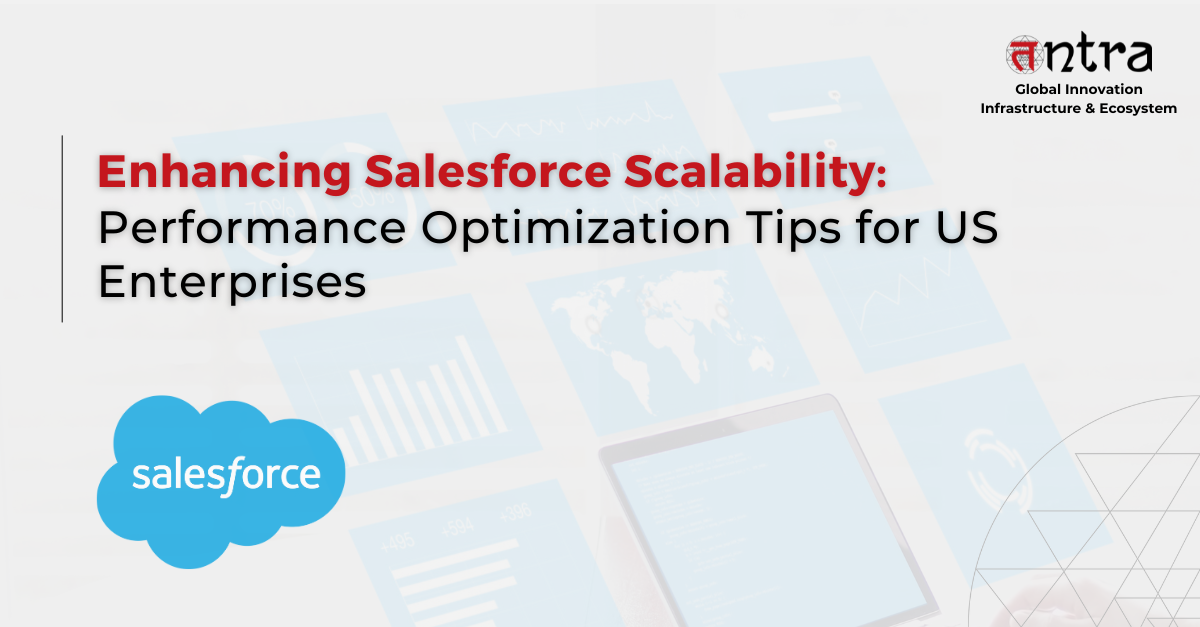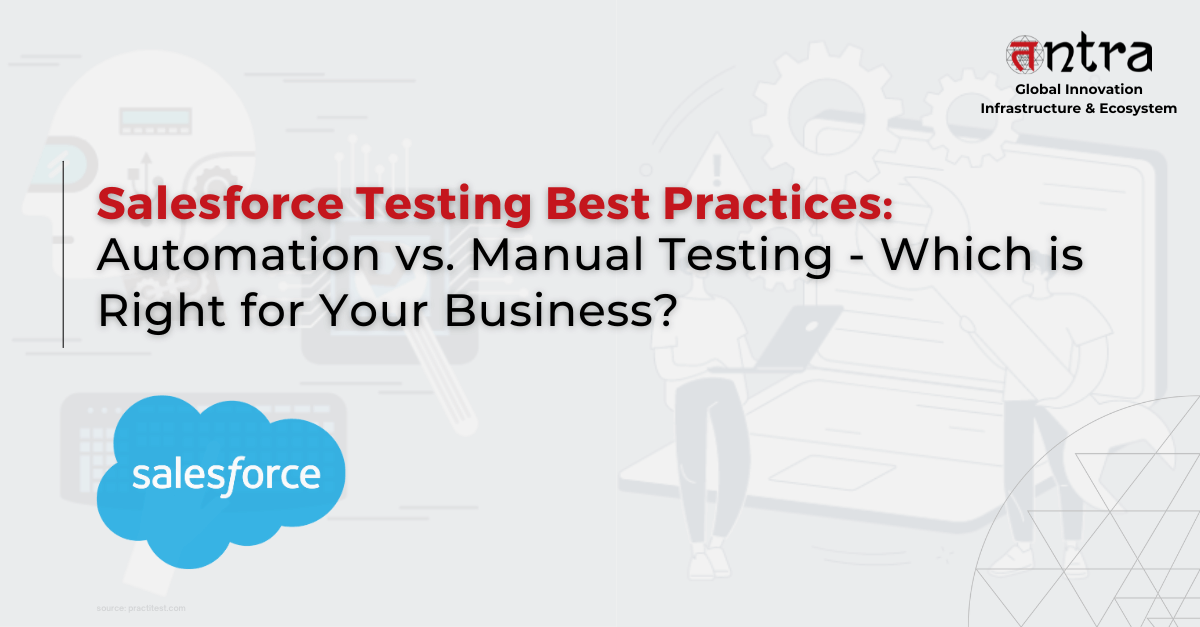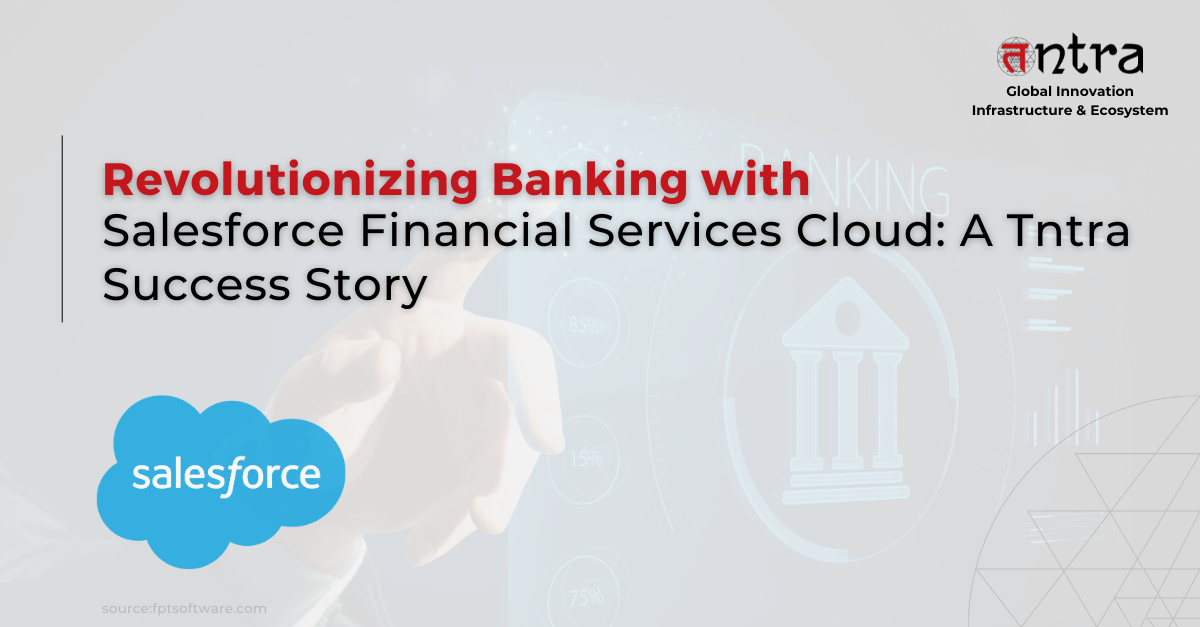
Enhancing Salesforce Performance Optimization: Scalability Strategies for Enterprises
Table of Contents
ToggleAs U.S. enterprises scale, optimizing Salesforce performance becomes crucial. This blog explores key Salesforce scalability tips, such as streamlining data management, refining custom objects, and leveraging AI-powered tools. By following best practices and engaging Salesforce consulting services, businesses can enhance system performance, support growth, and maintain efficiency. Salesforce optimization is vital for businesses looking to improve operational speed and scalability, ensuring long-term success and competitive advantage. Continue reading to learn more.
Texas Tech developed the Raider Success Hub, a one-stop student portal powered by Experience Cloud, to centralize all information pertaining to students. Students can quickly view their GPA, in-progress grades, academic advisors, and other information on this portal. Additionally, it has an Einstein chatbot to assist students in making appointments on campus, including with career counselors.
Faculty, advisers, career counselors, and wellness coordinators within Salesforce organizations now have a single platform to access student data, thanks to the Raider Success Hub. This centralized system enables experts to provide specialized support services, ensuring students receive timely guidance and resources. By implementing Salesforce performance recommendations, the Hub optimizes resource management, offering streamlined access to academic tools, professional development resources, event calendars, and wellness information. This approach enhances overall Salesforce performance, fostering a supportive environment that increases students’ likelihood of staying enrolled and achieving their academic goals.
With Salesforce performance optimization, and the Marketing Cloud product, Texas Tech revolutionized its student communications, leading to an astounding 58% increase in click-through rates. Texas Tech no longer uses a one-size-fits-all strategy and instead provides highly customized messaging based on each student’s particular requirements and interests.
(Source: Salesforce)
Salesforce Performance Optimization: Driving Implementation Across Markets & Industries
Salesforce is a leading CRM platform with more than 150,000 users globally, including well-known businesses like Amazon Web Services and Walmart Inc., which generate $611.3 billion and $80 billion in revenue annually, respectively. With over 80,000 employees, Salesforce is one of the largest and most well-known providers of cloud software.
Salesforce CRM users often experience a 35% improvement in customer satisfaction, an 18.4 percent rise in revenue, and a 38% speedup in decision-making. Although those are excellent “big picture” stats, the numbers are as striking when examined in further detail.
The global market for Salesforce solutions is anticipated to increase at a compound annual growth rate (CAGR) of 7.9% over the course of the forecast period, reaching $12 billion by 2027.
Salesforce Performance Optimization Tips for US Companies
Thousands of U.S. companies depend on Salesforce. It offers robust CRM, marketing automation, and customer service management. U.S. companies can really have smooth Salesforce performance while still being supportive of growth with the right scalability tips and performance optimization strategies for Salesforce.
Why Salesforce Scalability Matters for US Enterprises
Scalability is important to U.S.-based salesforce companies. When businesses scale, they need a software product engineering company to to scale and accommodate additional users, complex workflows, and larger data sets. The ability of your Salesforce system to scale adequately without sacrificing performance is crucial for maintaining operational efficiency. If your Salesforce system slows down or becomes inefficient, it can actually hamstring productivity, customer satisfaction, and business growth. Enter Salesforce scalability tips and performance optimization.
Best Practices for Salesforce Scalability and Performance Optimization
- Optimize Data Management
One of the Salesforce scalability best practices involves optimizing your data storage. Clear out unnecessary records, avoid excess use of large data volumes, and archive older records that are not a necessity anymore. Data lifecycle management has the ability to prevent bloating of the system and improve performance. - Use Custom Objects Prudently
Custom objects in Salesforce can be tailored to suit a company’s specific needs, but overuse or misuse of them will increase unwanted complexity. Be very careful about what custom objects you create and how many, to ensure they are provided as a clear necessity to your workflows. - Optimize Apex Code and Triggers
Commonly the cause of performance issues is found to be weak Apex code or poorly optimized triggers. Monitor and refactor your code regularly for improvement. Also, use asynchronous Apex wherever possible. It reduces the load on the system. If implemented in consideration with best practices, one can optimize Salesforce performance in USA.
- Use Indexes for Faster Query Execution
Queries that scan large volumes of data can degrade performance. Salesforce allows custom indexes to be created on frequently queried fields. Proper indexing ensures that the search and retrieval happens much faster, and that’s important for both user experience and system performance.
- Monitor System Performance Regularly
Salesforce software product engineering services provide several monitoring tools for system performance. Use these tools to identify bottlenecks, slow running processes and other areas of need. Regular monitoring is the key to detecting performance issues before they begin to affect users. - AI-Powered Salesforce Performance Optimization
As AI seamlessly becomes integrated into business operations, the use of AI-powered Salesforce performance optimization for enhancing salesforce is a game-changer. Using artificial intelligence, it can find some patterns, identify, and automate tasks that help boost system efficiency. By using AI for analyzing the performance data of U.S. enterprises, they would be able to prevent issues and optimize their workflows while estimating forthcoming scalability needs.
Salesforce Performance Optimization Solutions for Business Growth
Salesforce empowers business growth. Whether through custom Salesforce development services, Salesforce customization services, or leveraging advanced AI features, addressing Salesforce performance challenges is critical to unlocking an enterprise’s growth potential. By adopting a strategic approach to Salesforce performance, development companies and consulting firms help businesses implement tailored solutions that align with their growth strategies. This includes optimizing and monitoring Salesforce performance to ensure peak efficiency and sustainable success for U.S. enterprises.
Optimizing Salesforce: Final Thoughts on Driving Scalability and Growth
Improving Salesforce scalability is an essential part of maintaining business success. Applying Salesforce scalability best practices for enhancing system performance and operating through AI-powered tools would help U.S. companies with their Salesforce instances being agile, efficient, and able to support future growth. Business houses need to invest in continuous Salesforce optimization for customized solutions or application development services – all through Salesforce consulting services – for their perpetual changing needs and ahead-of-the-curve performance.
As a trusted Salesforce consulting firm or Salesforce development company, Tntra offers the right solutions and strategic inputs that are very crucial for any business to scale up effectively. Start today and watch your enterprise thrive.
What is Salesforce Optimization?
Refinement of features, workflows, and data management within Salesforce ensures further efficiency, improved user experience, and alignment with business goals. By leveraging Salesforce optimization solutions, businesses can maximize their platform’s potential.
How do you Optimize Performance in a Salesforce Application?
Optimizing performance involves cleaning up Apex code, using indexed fields for queries, reducing unnecessary data loads, and employing caching mechanisms. Implementing Salesforce performance optimization techniques ensures seamless application functionality and enhanced productivity.
What impacts Salesforce Performance for Enterprises?
The volume of data, inefficient customizations, poorly designed workflows, and complex integrations with other systems significantly affect an organization’s Salesforce performance. Addressing these challenges with Salesforce optimization solutions can help enterprises achieve better operational outcomes.





